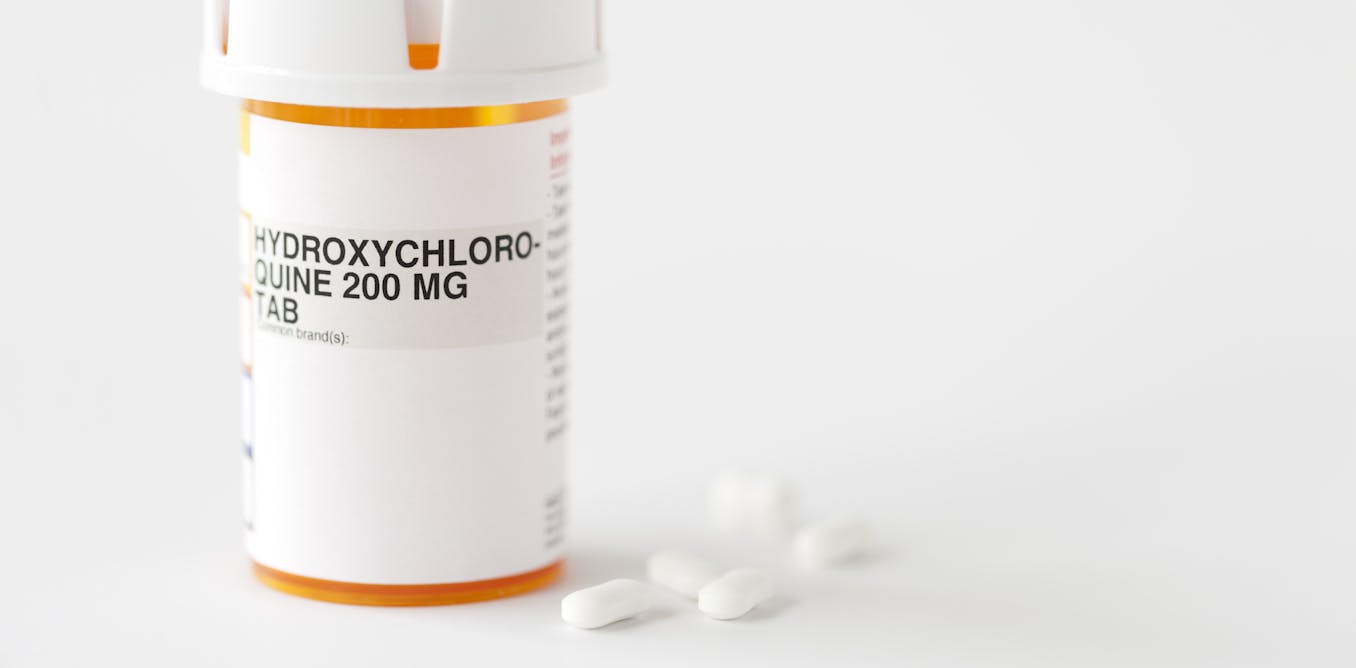Jump-Starting Novel Coronavirus Treatment With Malaria Drugs
"When people become very ill ... your impulse is to try anything that might help, and that's driven the response in some places."
"But as people have been wrapping their heads around the data underpinning these drugs, it's really pretty thin on the ground."
Lynora Saxinger, infectious disease specialist, University of Alberta
"One perspective is 'We're in a time of desperation and let's throw anything we can at it to save people's lives'. I understand that."
"The danger is it's not objective. It could result in harm."
"This is unprecedented ... at least in my time."
Dr.Salim Yusuf, professor, clinical trials expert, McMaster University, Hamilton
 |
Health Canada has approved eight separate COVID-19 trials, in an effort to try to advance scientific efforts to find, trial and approve an effective and safe vaccine against the novel coronavirus that is wreaking havoc throughout the globe. But what has been lauded as a "game changer" by President Donald Trump, a malaria drug, hydroxychloroquine, is viewed by many within the medical community as an answer to the question of 'what can we do?'. To the extent that the U.S. Food and Drug Administration has given physicians a green light for its use on COVID-19 patients.
Which is to say, physicians are now able to prescribe the drug for a purpose other than what it was intended for, in the belief that it is capable of not only relieving symptoms of COVID-19, but stopping the infection altogether, even though minimal evidence exists that it can in fact help the stricken at all. Both India and Brazil have taken to the use of hydroxychloroquine in the belief that it does work, clinical trials or not.
Canadian researchers, on the other hand, have expressed a far more cautious stance, unwilling to use the drug and other potential medications against the novel coronavirus in the absence of clinical proof of safety and efficacy. Instead they have involved themselves in a number of studies of the malaria drug with financial support from the federal government, while discouraging use of the drugs other than as part of clinical trials.
Dr. Salim Yusuf is engaged in designing along with others, a fast-tracked hydroxychoroquine study, to determine whether a variety of new drugs or others originally used for other conditions might conceivably help patients made critically ill by the pathogen. Given the most attention worldwide because of a small French study that appeared to indicate that combining it with the antibiotic azithromyein resulted in effectiveness against the coronavirus, the malaria drug is top of mind with many, across the globe.
 |
The FDA stated that use of the malaria drug though risky as an unproven remedy for those seriously ill with coronavirus, could be considered. And though Canadian doctors are legally permitted to prescribe approved medicines "off label" for uses not designed specifically for other maladies, they hesitate to do so and Health Canada has refrained from following the U.S. lead to encourage the use of hydroxychloroquine.
In a March 30 report, the B.C. Centre for Disease Control recommended against the use of any of several potential novel coronavirus drugs other than in clinical trials, while Quebec's National Institute of Excellence and Social Services stated in a news release that treating coronavirus patients with the malaria pills "be done within the framework of research protocols", clear refutations of the prescription of an unproven protocol.
University of Toronto-based critical care doctors feel experimental therapies should be used within clinical trials only, or after obtaining the patient's informed consent following consultation with an infectious-disease specialist. Dr.Yusuf refers to patient safety over expediting an unproven treatment as being paramount in health care.
Even so, the accelerated effort in conducting studies on drugs to counter COVID-19 is remarkable, when researchers normally take two or more years to study a drug and then set up the trial. His own group's trial involving hydroxychloroquine, launched two weeks earlier, plans to begin enrolling patients in a week or so, pending Health Canada approval.
While in the United States and elsewhere, the malarial drug has been snapped up by people converging on pharmacies and taking to hoarding the drug for personal use, without knowing how much would represent a safe dose.
 |
Labels: Canada, Drug Research, Malaria Drugs, Novel Coronavirus, Panic Hoarding, United States
0 Comments:
Post a Comment
<< Home